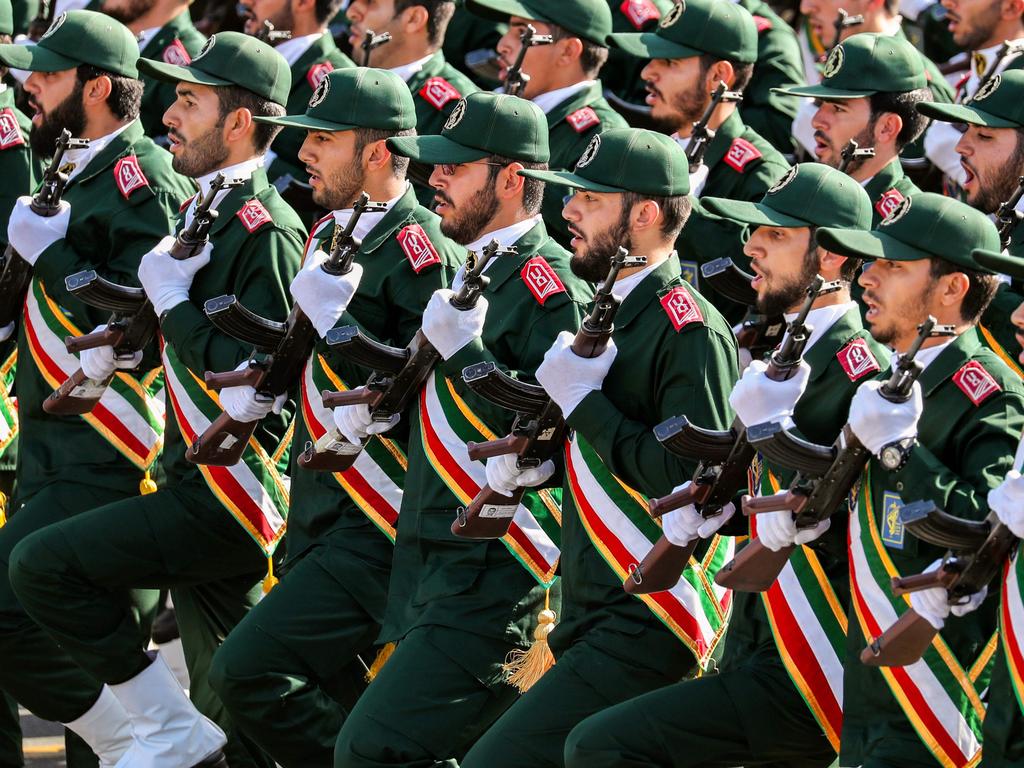
Grey-zone operations fall just below the threshold that would trigger US military response. Thus Russia first invaded Crimea, in 2014, with “little green men”. These were Russian soldiers who weren’t wearing Russian uniforms. Their identity as local participants in a civil dispute was implausible, but created just enough fog, just enough ambiguity, that it allowed the folks in Washington who didn’t want to confront Russia, even with serious sanctions, to win the day.
Similarly, much of the quasi-military action Beijing undertakes in the South China Sea to push out the Southeast Asians nations, especially The Philippines, is carried out by Chinese navy vessels disguised as coast guard or even fishing ships.
There’s often public disavowal of aggressive intent. Xi Jinping promised Barack Obama Beijing would never militarise the South China Sea. The region now bristles with Chinese military bases. Vladimir Putin, in countless contradictory statements, often enough said he had no intention of invading Ukraine, though he often said the opposite as well.
How does this relate to Iran, and its new attack on Israel with more than 300 drones, cruise missiles and ballistic missiles? Until this attack, Tehran itself was a master of classic grey-zone tactics. It labels the United States the Great Satan and Israel the little Satan, and is dedicated to wiping Israel off the map. As a point of key theological belief, it seeks the destruction of the world’s only Jewish state.
But it has until now operated almost exclusively through proxies – Hamas in Gaza, other Palestinian terrorist groups, Hezbollah in southern Lebanon, Shi’ite militia in Syria and Iraq, and the Houthi rebels in Yemen. Iran funds all these groups and gives them strategic direction. It’s not entirely a one-way street. All these groups are both territorial and Islamist, and they hate Israel on theological, historical, territorial and strategic grounds.
For the first time, Iran attacked Israel directly. But it was a carefully calibrated attack. It used hundreds of drones, which travel fairly slowly. And it used cruise missiles. All the cruise missiles and drones were intercepted before they got to Israel. Iran also fired dozens of ballistic missiles. It seems half a dozen ballistic missiles made it into Israel and one or more hit an Israeli air base, although causing minimal damage.
How then can I suggest even such a direct attack is in a sense still a grey-zone operation? Iran told some regional nations in advance what it was planning to do; it also made sure the Biden administration in Washington knew it was not the start of an all-out war against Israel, and it didn’t ask Hezbollah to fire a strategic number of its missiles at Israel at the same time. That would have made it much harder for Israel’s layered air defence system to cope.
Therefore, in one sense, Iran was continuing grey-zone tactics. It was testing, but not breaching, the threshold that would trigger US action. American deterrence of Iran failed. Biden told Iran not to carry out this attack but it did so any way. However, Iranian deterrence of the US worked. The Biden administration, while working very effectively to help Israel’s air defence system, immediately made it clear Washington would take no independent military action against Iran. Importantly, Washington also let it be known that it was counselling Israel to regard the effectiveness of its air defence as sufficient military success, and not to strike back directly.

Iran has deterred America. America has not deterred Iran. The Western commentariat moved at lightning speed from condemning Iran’s attack to demanding that Israel “show restraint”.
So far, thus, Iran can see this strike as both a success and a failure. If it gets away with directly attacking Israel and suffers no consequence, that is an enormous change to the strategic parameters of the Middle East and a big advance for Iran. Tehran will also derive immense operational information from this experiment. Next time, it might be much deadlier.
On the other hand, the sheer technical incompetence of Iran’s military strike is a serious blow to Tehran. Israel’s air defence, tremendously bolstered by the Americans, but with some other allied and Arab support, worked superbly. This must also give Hezbollah pause. The Lebanese Shi’ite terrorist group has many more than 100,000 missiles ready to fire at Israel, from much closer than western Iran. But it doesn’t have ballistic missiles. It’s possible Hezbollah could fire its missiles, Israel could blunt almost all of them and then wreak tremendous damage on Hezbollah in response.
For all that, it’s overwhelmingly likely Israel will respond eventually. I would guess it probably won’t attack Iran’s nuclear facilities but will make missile strikes on important Iranian military facilities. It’s inconceivable that Israel, or almost any nation, can sustain direct attack of more than 300 missiles and drones and not respond at all. But it may suit Israel to take its time responding. Israel’s focus is likely to remain on Gaza.
A final Australian note. The Albanese government ministers were determined not to say “We stand with Israel” in response to the Iranian attack. This may be because the government manifestly doesn’t stand with Israel, or with the Australian Jewish community as it suffers a rising tide of anti-Semitism.
In the interest of the reputation and decency of our military, and of the integrity of our politics, former defence force chief Air Marshal Mark Binskin should resign his commission as the government’s adviser to interfere with Israel’s investigations into the tragic and accidental killing of seven aid workers in Gaza.
Binskin is an honourable man. The government is exploiting and misusing his honour and his uniform. No other nation that lost a citizen in this tragic accident made an equivalent of Australia’s ridiculous appointment. Nor has Australia ever invited a foreign nation to participate in an Australian internal military investigation. The hypocrisy is staggering.
The appointment is a disgraceful stunt. It seeks to clothe the Albanese government’s tawdry manoeuvring in the politics of the sectarian left in an Australian military uniform and give it therefore a fraudulent aura of honour, decency and substance.
It’s a misuse of the Australian uniform and threatens to partially undermine the apolitical traditions of the Australian Defence Force. Binskin is an obedient servant of the national government. In this case, he has a higher duty to the nation and the ADF. He shouldn’t disobey orders. He should simply resign from an untenable position and let the government handle its politics all by itself.








The Iranian missile-and-drone attack on Israel bears a resemblance to the way China conquered the South China Sea and Russia first took over Crimea. The three authoritarian allies, Iran, China and Russia, are masters of grey-zone military tactics.